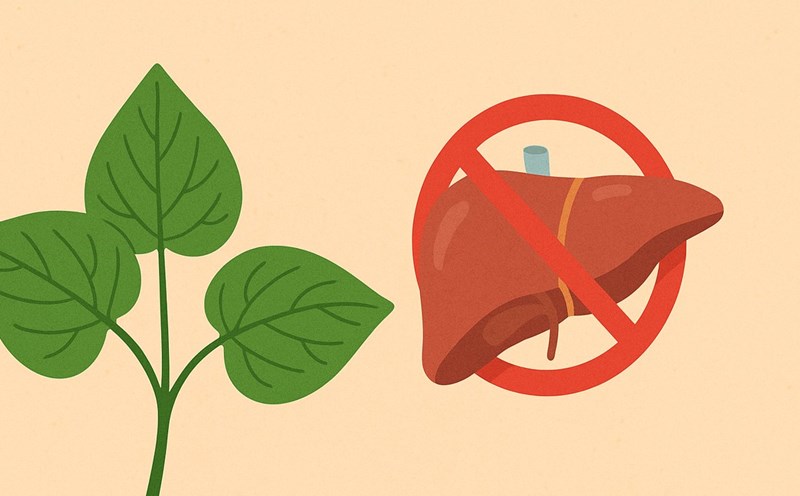Chicken eggs are a familiar food in every family's meal. However, this food is only effective if eaten properly, especially for people with liver disease. Doctor Le Thi Phuong Thao, Tam Anh General Hospital, has consulted on this issue.
The effect of chicken eggs on liver health
Chicken eggs are a nutritious food, providing a lot of protein, vitamins (A, D, B12), minerals (selen, iron, calcium) and substances that are beneficial to general health, including the liver.
Choline: This is an important nutrient for health, which can form and maintain cell membranes by synthesizing phospholipid fat. Choline is also involved in the production of neurotransmitter acetylcholine, which plays an important role in the metabolism and transportation of fat. This helps maintain effective liver function, while supporting liver detoxification function.
Lecithin: This substance has the ability to support fat metabolism, thereby preventing the risk of fatty liver. This contributes to improving liver function and protecting the liver from the negative effects of excess fat accumulation.
Vitamin D, B12: Chicken eggs contain a large amount of vitamin D and vitamin B12. These micronutrients are known for their ability to maintain a healthy immune system, enhance metabolism, and support the maintenance of healthy liver function.
Eating too many eggs can harm the liver
According to doctors, eating too many eggs can harm liver health. Each person should only consume enough eggs. Consuming too many eggs can have a negative impact on the liver.
Increased fat metabolism burden: Each egg contains 186 mg of cholesterol, accounting for 62% of the recommended daily intake. Eating too many eggs will increase the liver's fat metabolism burden, especially when eaten with other foods rich in saturated fat. This causes the liver to work harder to process excess fat, which can affect liver function in the long run.
Increased risk of metabolic disorders in people with liver disease: In this group of subjects, liver function is less stable than normal. Consuming large amounts of cholesterol and bad fats from eggs can aggravate the condition, as the liver is not capable of handling these substances effectively. This leads to metabolic disorders - a group of diseases including: belly fat, high blood sugar, high blood pressure, abnormal cholesterol...
Risk of allergies and inflammation: If you are allergic to protein, consuming too many eggs at one time can increase the risk of allergies due to the immune system reacting excessively to the protein in eggs, causing inflammation, hives, nasal congestion, nasal congestion, nausea, vomiting, difficulty breathing...
Allergies can also stimulate the body's inflammatory response, increasing the burden on vital organs, including the liver.
Eating a lot of eggs can harm the liver if consumed too much, especially for people with liver disease. Healthy people should also control the amount of eggs they eat to protect liver and cardiovascular health.











